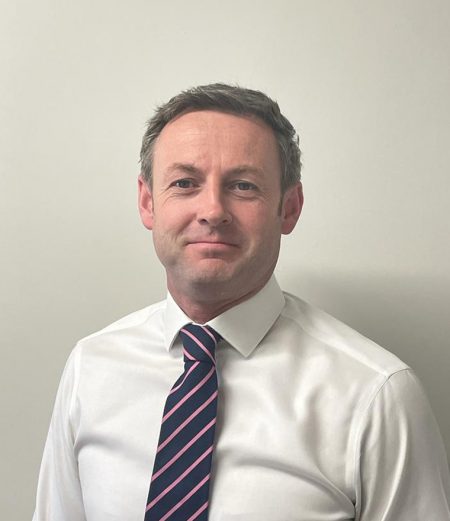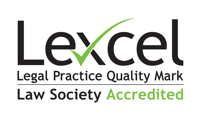
Social Work England (SWE) Investigations & SWE FTP Hearings Advice & Representation
Put your trust in Clifford Johnston & Co.
- Social Work England Investigations Experts
- SWE Solicitors – LEXCEL Accredited
- Protect Your Career as a Social Worker
- Call us for Specialist SWE Legal Defence
Social Worker Lawyers. Experts in Legal Advice for Social Workers & SWE Investigations
Our Social Worker Lawyers have the experience to expertly advise and represent you, when facing Social Work England Investigations or an SWE Hearing.
Our specialist Lawyers for Social Workers operate nationally. Clifford Johnston & Co is recognised both as a leading firm of Social Worker Defence Lawyers, and for our detailed understanding of the SWE Investigation procedure.
An SWE Investigation or referral are serious matters, and we understand that an unwanted or unfair result can carry life changing consequences in terms of your profession and reputation.
Our Social Worker Defence Lawyers have gained an excellent reputation for defending Social Workers and we are a leading practice in this field.
Contact us today for a free initial consultation with a qualified SWE Solicitor or Lawyer with the knowledge and skills to support you through this challenging process.
If you are a Social Worker who has been referred to the SWE, it is important that you seek legal advice from experienced solicitors as soon as possible.
Social Work England (SWE)
SWE is the statutory regulator responsible for the regulation of Social Workers and has a responsibility for making sure that the professional standards of social work are upheld. It was established by the Children and Social Work Act 2017. The Social Workers Regulations 2018 supports the above Act.
In December 2019, SWE took over responsibility from the Health and Care Professions Council (HCPC) for regulating Social Workers in England.
SWE’s professional standards set out the requirements that they expect Social Workers to meet.
Read the professional standards guidance here.
SWE will not investigate any concerns that do not relate to a social worker’s fitness to practise, for example:
(i) being rude
(ii) making decisions that someone doesn’t agree with
(iii) being late for appointments
What happens when concerns are raised with SWE?
When SWE receives a concern about a social worker’s fitness to practise, they will consider whether it requires investigation under their fitness to practise process.
SWE’s triage will review the concern(s) and ask themselves two questions:
- Is the concern about a social worker?
- Does the concern relate to your fitness to practise?
Your fitness to practise could be impaired due to:
- misconduct,
- a lack of competence or capability,
- a conviction/caution,
- serious ill health,
- a decision by another body that your fitness to practise is impaired,
- being barred from working with children or vulnerable adults,
- not having the necessary knowledge of English.
A panel, which includes a practising social worker, is responsible for reaching this decision. Importantly, the panel does not decide whether the concerns that have been raised are true, only if they require further investigation.
If the panel decides that there are reasonable grounds to investigate further, a fitness to practise case is created and referred to their investigations team.
Social Work England Investigations – what happens next?
SWE will commence an investigation.
As part of the investigation, SWE may ask you to supply additional information and/or documents within a specified timeframe. You will be provided with an opportunity to ask questions about any issues raised or documentation requested.
SWE may contact different parties relating to your case for further information and may contact you for consent to collect this information.
Once the investigation is complete, you will be sent an investigation report and an evidence bundle. This will include all the relevant material that has been gathered. At this point you can review the content and provide your comments and any further evidence that you feel may assist your case. This is a very important stage which requires careful consideration.
What do you need to do?
Your current and past employers (including address(es) and any relevant agency details) where you have provided services as a social worker, or in relation to social work.
Details of anyone with whom you have or had an arrangement to provide services as a social worker, or in relation to social work.
Details of any regulatory body that you are registered with, including your registration number.
Please be aware that providing this information is a legal requirement (Rule 8(b) of the Fitness to Practise Rules 2019). If you do not provide the information without good reason, this could result in your suspension or removal from the register and/or a criminal investigation.
In addition to providing the information requested above, you are also entitled to send SWE any additional information that you think may be helpful at any stage of the investigation.
You will be given at least 14 calendar days to submit a written response. This is your opportunity to provide your response to the concerns that have been raised.
What is the role of the case examiners?
Case examiners will review the evidence collated during an investigation, including your response, and they will decide the next steps.
The evidence will be considered by a lay case examiner and a professional case examiner who will be a practising social worker.
Case examiners must decide whether – if there was a hearing in your case – there was a realistic prospect that your fitness to practise could be found to be impaired.
If the case examiners find that there is a realistic prospect of impairment, they will then decide whether there is a public interest in a hearing being held.
The Case Examiners will decide whether to:
- close the case,
- offer you a disposal without a hearing (known as an accepted disposal outcome),
- refer the matter to a fitness to practise hearing.
What is an ‘accepted disposal outcome’?
An ‘accepted disposal outcome’ relates to cases that do not need to be listed for a public hearing because a suitable outcome can be agreed with you. However, you must accept that your fitness to practise is impaired and agree to the proposed sanctions. If you do not accept that your fitness to practise is impaired or the proposed sanction, your case will be sent to a hearing.
Case examiners can propose that your case be dealt with by; (i) no further action; (ii) advice; (iii) a written warning; (iv) conditions of practice for up to 3 years; or (v) suspension for up to 3 years.
SWE fitness to practise hearings
SWE’s case presenter will set out the evidence relating to their concerns about you and will usually call witnesses to provide oral evidence in support of their allegations.
You will have the opportunity to question SWE’s witnesses and provide your version of events, which may include calling defence witnesses.
You may be represented at the hearing by us or another suitable party or you may represent yourself.
At SWE hearings, adjudicators decide if:
- investigators have proved the facts of the allegation(s) against you,
- the facts amount to the ‘grounds’ set out in the allegation,
- your fitness to practise is impaired as a result of this.
What are Social Work England’s ‘Grounds’
If the adjudicators find that the facts have been proved against you, it will consider whether those facts are enough to uphold the statutory grounds of the allegation.
Possible statutory grounds to an allegation include misconduct, lack of competence and/or health.
If the adjudicators decide that the grounds have been established, tey will consider whether your fitness to practise is impaired.
What is impairment?
SWE will find impairment if there are serious concerns about the suitability of your character and/or your ability to practise safely and effectively.
The adjudicators will decide whether the evidence available shows that you may still present a continuing risk of harm to the public, or to yourself. They will also consider the nature and seriousness of the allegations and any actions you have taken to address the concerns raised.
The adjudicators must decide if your fitness to practise is currently impaired, not whether it was impaired when the events of the allegation took place. Because of this, the adjudicators may need to know more about what has happened since those events happened. Insight, reflection and remediation is extremely important in some cases.
If your fitness to practise is found to be impaired, the adjudicators will consider what, if any, sanctions should be imposed.
What sanctions can Social Work England (SWE) impose?
The purpose of fitness to practise hearings is to protect the public, not to punish you.
Therefore, SWE’s most important consideration is public protection.
The panel can:
- take no further action – this decision would be published on their website for one month but will not be recorded on the online register.
- give advice – this decision will be published on SWE’s website and will be added to the online register for between 1 – 5 years depending on the seriousness of the issue.
- put a warning on your registration for up to five years.
- impose conditions on your practice for up to three years – the purpose of this is to protect the public while you take any necessary steps to remediate your fitness to practise.
- suspend your registration for up to three years.
- remove you from the register – this decision must be made where the adjudicators decide that no other outcome would be enough to protect the public, maintain confidence in the social work profession or maintain proper professional standards for social workers in England.
Social Work England (SWE) Interim Orders
An interim order can restrict or suspend your registration whilst an investigation is in progress.
SWE will assess whether there are any risks associated with your continued practice whilst the investigation is ongoing. An interim order will only be applied where it is necessary to protect the public, or where it is in a social worker’s best interests.
Investigators must refer a case to the case examiners if, at any time during their investigation, they consider that an interim order:
‘…may be necessary for the protection of the public or in the best interests of the social worker.’ (Schedule 2 paragraph 5(4)(a) of the regulations)
If you are made subject to an interim order, it would be reviewed every six months by the adjudicators, unless the order is changed, or SWE needs to apply to the High Court for an extension. If it is extended, it will be reviewed every three months.
Social Work England (SWE) Appeals
You may appeal to the High Court in England against any sanction imposed against you. The appeal must be lodged within 28 days of being informed of the decision.
How Can We Help?
We are experienced SWE Investigation Defence Lawyers, with a proven track record of defending clients in social work England fitness to practice investigations. We can help you throughout your cases in the following ways:
- Representing social workers accused of criminal offences,
- Offering practical, robust and strategic legal advice,
- Representing social workers subject to criticism during an inquest,
- Providing specialist advice in respect of SWE investigations,
- Drafting formal responses and written representations,
- Advising in respect of the suitability of an accepted disposal outcome,
- Assistance at interim orders hearings,
- Representation before the fitness to practise hearing,
- Advising on and preparing for Disclosure and Barring list representation,
- Advising on appeals to the High Court against sanctions imposed upon you.
Why Choose Us?
We have a wealth of experience defending professionals before their regulatory body. You can be assured of excellent representation throughout your case.
Our Lawyers for Social Workers offer a bespoke, platinum service and we will ensure that everything that can be done, is done, to preserve your reputation and your career.
Contact our SWE Lawyers today for a free consultation.

Need some professional advice?
Do you have any issues that you are worried about? Contact our professional team for a free, no-obligation informal discussion, where we can discuss your particular requirements in greater detail.













